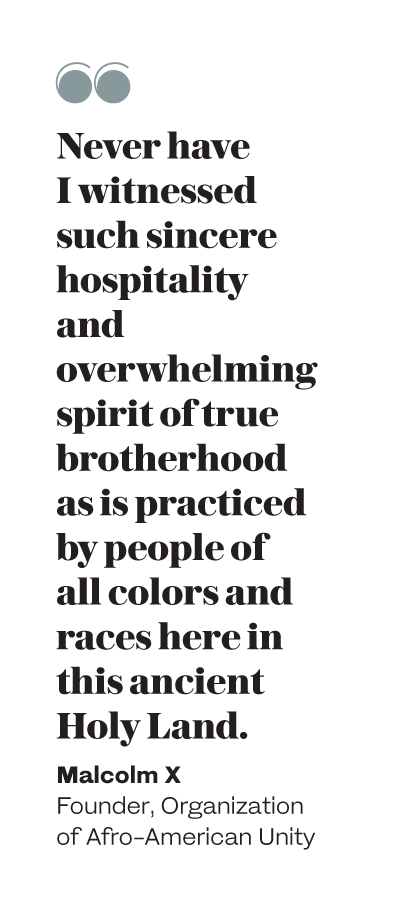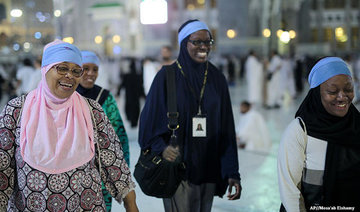MAKKAH: Malcolm X was an American Muslim minister and human rights activist. To his admirers he was a courageous advocate for the rights of blacks, a man who indicted white America in the harshest terms for its crimes against black Americans. But his detractors accused him of preaching racism and violence.
He has been called one of the greatest and most influential African Americans in history. Malcolm was a member of the Nation of Islam, an African American politico-religious movement founded by Wallace D. Fard Muhammad in the 1930s.Their goals were to improve the spiritual, mental, social, and economic conditions of African Americans in the US. Critics have described the organization as black supremacist.
Malcolm formally left the organization and made a Muslim pilgrimage to Makkah, where he was profoundly affected by the lack of racial discord among orthodox Muslims. He returned to America as Al-Hajj Malik El-Shabazz and founded the Organization of Afro-American Unity, which advocated black identity and held that racism, not the white race, was the greatest foe of the African American. Malcolm’s new movement steadily gained followers, and his more moderate philosophy became increasingly influential in the civil rights movement, especially among the leaders of the Student Non-Violent Coordinating Committee. This organization was founded after Malcolm’s awakening from his pilgrimage to Makkah.
Decoder
Al-Hajj
is a title given to those who performed the pilgrimage.
“Never have I witnessed such sincere hospitality and overwhelming spirit of true brotherhood as is practiced by people of all colors and races here in this ancient Holy Land, the home of Abraham, Mohammad and all the other Prophets of the Holy Scriptures,” Malcolm X wrote in his letter from Makkah, a letter that he spent the night duplicating while staying there. He sent a copy to his wife and his older sister Ella. He also asked for a copy to be sent to the press in the US.
He also wrote: “During the past 11 days here in the Muslim world, I have eaten from the same plate, drunk from the same glass, and slept on the same rug — while praying to the same God — with fellow Muslims.” He ends his letter: “Never have I been so highly honored. Never have I been made to feel more humble and unworthy.”
He signed his name with his new title Al-Hajj Malik El-Shabazz. “Al-Hajj” is a title given to those who performed the pilgrimage.
When Malcolm first arrived at Jeddah Airport, he noticed that the people there were pilgrims from Ghana, Indonesia, Japan and Russia. He then explained in his biography: “I don’t believe that motion picture cameras ever have filmed a human spectacle more colorful than my eyes took in.” He concluded “Chinese, Indonesians, Afghans. Many, not yet changed into the Ihram garb, still wore their international dresses. It was like pages out of the National Geographic magazine.”
On Feb. 21, 1965, one week after his home was firebombed, Malcolm X was shot dead by Nation of Islam members while speaking at a rally of his organization in New York City.





























